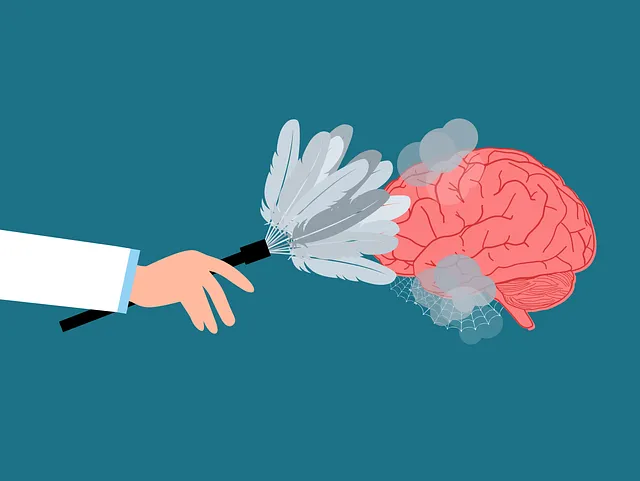Community outreach programs like Kaiser Permanente's in Arvada tackle mental health barriers with accessible services, cultural sensitivity, and self-care promotion. The dedicated Kaiser Permanente mental health phone number for Arvada connects individuals to professionals, raising awareness. Tailored strategies, KPI tracking, and trauma-informed care enhance program effectiveness, fostering open conversations about mental health.
Community outreach programs play a pivotal role in enhancing access to essential services, particularly in remote areas. This article delves into the significance of such initiatives, highlighting successful cases like Kaiser Permanente’s efforts to provide mental health support via remote access. We explore strategies to engage diverse communities and measure program impact. Key focus includes the Kaiser Permanente mental health phone number in Arvada, showcasing how innovative solutions are revolutionizing care accessibility.
- Understanding Community Outreach for Mental Health Support
- Kaiser Permanente's Role in Accessing Remote Areas
- Phone Lines: Enhancing Care through Arvada's Initiative
- Strategies for Engaging Diverse Communities
- Measuring Success: Evaluating Outreach Program Impact
Understanding Community Outreach for Mental Health Support

Community outreach programs play a pivotal role in addressing mental health concerns within diverse populations. Understanding the unique needs and cultural contexts of each community is essential to delivering effective support. For instance, in Arvada, organizations like Kaiser Permanente offer dedicated mental health phone numbers as a first point of contact for individuals seeking assistance. This initiative ensures accessibility, especially for those who may face barriers in reaching traditional healthcare settings.
A key aspect of successful outreach involves cultural sensitivity and conflict resolution techniques within mental healthcare practices. By incorporating these strategies, healthcare providers can build trust and deliver services tailored to diverse communities. Furthermore, promoting self-care routine development is an integral part of fostering resilience and overall well-being among community members.
Kaiser Permanente's Role in Accessing Remote Areas

Kaiser Permanente, a renowned healthcare organization, has been at the forefront of providing accessible mental health services, even in remote areas. With a dedicated team and innovative strategies, they bridge the gap between urban and rural communities. One notable initiative is their focus on reaching individuals in Arvada and surrounding regions through various outreach programs. This includes mobile clinics that travel to underserved locations, offering much-needed psychological support and counseling.
By implementing these community-centric approaches, Kaiser Permanente empowers local residents with tools for self-care routine development, fostering better mental well-being. Their efforts extend beyond direct service provision; they also advocate for Mental Health Policy Analysis and Advocacy, ensuring that resources and services are tailored to the unique needs of remote communities. Furthermore, they conduct risk assessments for mental health professionals working in these settings, prioritizing their safety and well-being.
Phone Lines: Enhancing Care through Arvada's Initiative

Arvada’s innovative approach to community outreach has significantly enhanced mental healthcare accessibility, particularly through their dedicated phone lines initiative. This program connects individuals seeking support with trained professionals, offering a confidential space for discussions on various mental health concerns. The primary focus here is on providing timely assistance, especially for those who might face barriers in accessing traditional care settings. By implementing this system, Arvada aims to ensure that everyone, regardless of their background or circumstances, can reach out and receive much-needed guidance.
The phone lines initiative also targets specific communities, considering the unique challenges they may face. This personalized approach includes promoting Cultural Sensitivity in Mental Healthcare Practice, ensuring diverse populations feel welcomed and understood. With a dedicated line for Kaiser Permanente mental health support, the program caters to existing patients’ needs while simultaneously raising Mental Health Awareness among the general public. Public Awareness Campaigns Development is another key aspect, educating folks on available resources and encouraging open conversations around mental well-being.
Strategies for Engaging Diverse Communities

Reaching out to diverse communities requires tailored strategies that acknowledge and respect unique cultural, social, and economic contexts. Organizations like Kaiser Permanente can play a pivotal role in promoting mental health by offering accessible services, such as providing a dedicated Kaiser Permanente mental health phone number Arvada for immediate support. This direct communication channel breaks down barriers, ensuring that individuals from all backgrounds can connect with necessary resources.
Implementing self-care practices and empathy building strategies is essential when engaging diverse communities. Cultural sensitivity training for staff members equips them to offer trauma-informed care and trauma support services. By fostering an environment of understanding, these initiatives not only strengthen community ties but also encourage open conversations about mental health, ultimately improving access to critical services like those provided by Kaiser Permanente.
Measuring Success: Evaluating Outreach Program Impact

Measuring success is a vital component of any community outreach program, especially when addressing mental health initiatives like those offered by Kaiser Permanente through their Arvada location. Evaluating the impact involves tracking key performance indicators (KPIs) specific to the program’s goals. For instance, if the focus is on increasing awareness and accessibility to mental health services, metrics could include the number of individuals reached through outreach efforts, the percentage who express interest in seeking help, and the improvement in their self-reported mental well-being.
By utilizing data collection methods tailored to each program, such as pre and post-program surveys or interviews, organizers can gauge changes in attitudes and behaviors. This qualitative and quantitative analysis provides valuable insights into the effectiveness of the outreach, enabling adjustments to better meet the needs of the community. Additionally, measuring success may involve comparing risk assessment data for mental health professionals before and after the program to ensure improved conflict resolution techniques and overall mental health outcomes.
Community outreach programs, as demonstrated by initiatives like Kaiser Permanente’s remote area access and Arvada’s mental health phone line, play a pivotal role in enhancing healthcare accessibility. By employing strategies that engage diverse communities, these programs not only measure success through impact evaluation but also foster inclusive care. In light of the proven benefits, organizations such as Kaiser Permanente can continue to lead the way in revolutionizing mental health support, ensuring no community is left behind. For those seeking assistance, remember that the Kaiser Permanente mental health phone number in Arvada is a valuable resource accessible 24/7.






